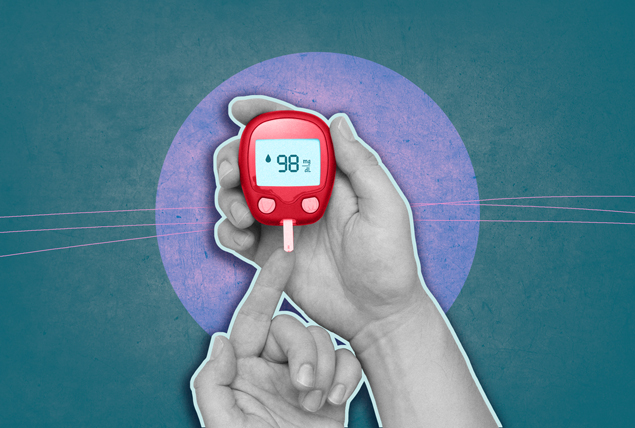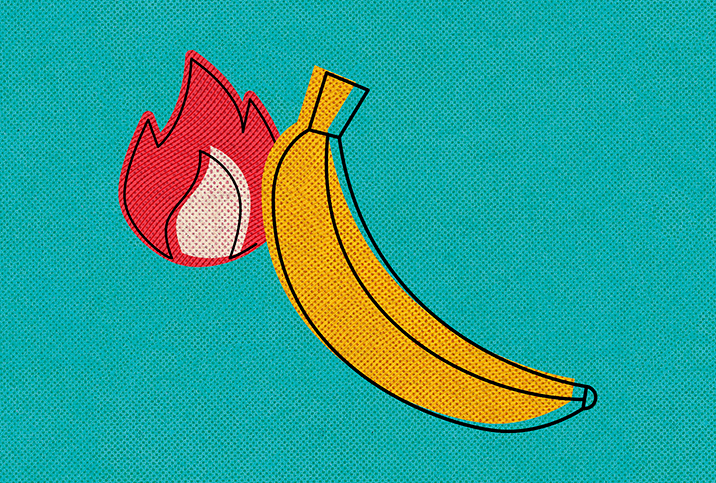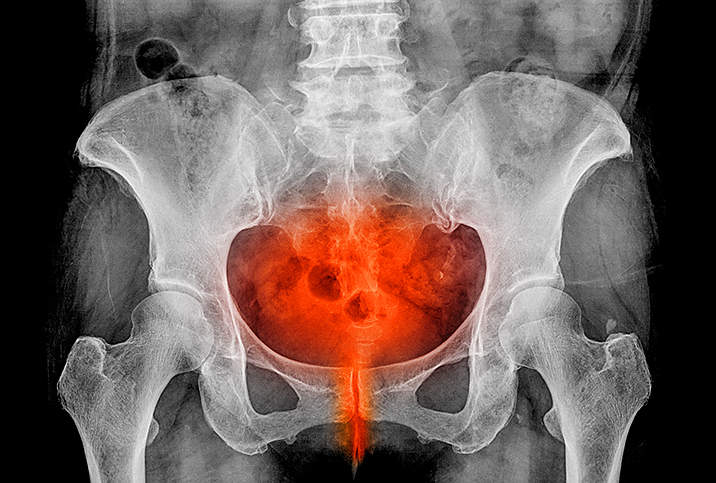What Are the Ties Between UTIs and Blood Sugar?

Key Points
- Though they may seem unconnected, there's a correlation between high blood sugar and urinary tract infections.
- This can be even more problematic for people with type 2 diabetes who struggle with blood sugar issues.
- If you notice any symptoms of a UTI, visit a doctor—especially if you're already at risk of developing them.
Almost anyone can get a urinary tract infection (UTI). Children and older adults have a heightened risk of experiencing a UTI, but adults of all ages can be affected. While it may seem unconnected, high blood sugar increases your odds of developing a UTI.
Here's what you need to know about UTIs and how blood sugar impacts your risk of getting one.
What is a urinary tract infection?
UTIs are bacterial infections that can occur anywhere along the urinary system: kidneys, ureters, the bladder and the urethra. As gross as it may sound, UTIs start when bacteria, often E. coli from fecal matter, enter the urethra.
Exactly how the bacteria gain a foothold and spread depends on the situation.
"Common causes of UTIs are lack of hydration, infrequent urination, constipation and, for some, sexual intercourse," said Jill Begnoche, M.S.N., A.P.R.N., a nurse practitioner who specializes in urology at Dartmouth Hitchcock Medical Center in Lebanon, New Hampshire.
UTIs can also develop due to immunosuppression, said Vikas Desai, M.D., a urologist at Northwestern Medical Group in Chicago. When the immune system is weak, infections can develop quickly and easily.
Roughly 12 percent of men will get a UTI in their lifetime, according to the Urology Care Foundation.
What are the warning signs of a UTI infection?
Not every UTI causes symptoms, but when one does, early signs of a UTI in men can include the following:
- Strong, constant urge to urinate
- Frequent urination
- Burning sensation during urination
- Cloudy, brown or pink urine
If the infection has spread to the kidneys, there might be lower abdominal pressure, back or side pain, fever, and nausea.
What's the connection between blood sugar and UTIs?
Blood sugar is the concentration of glucose (sugar) in your blood. When blood sugar gets too high, your body flushes out excess glucose in urine. That's good news for blood sugar levels but not great if harmful bacteria are lurking in your urinary system.
"Bacteria love to feed on sugar, so this can create the perfect breeding group for bacteria to replicate and cause infection," Begnoche said.
People with diabetes are about 10 times more susceptible to UTIs than the general population.
UTIs are the most common infectious disease among type 2 diabetes patients, a 2022 study suggested. Glucose-rich urine may be one reason, but Desai said the connection is more complicated.
Diabetes leads to an immunosuppressed state, he said. If bacteria are thriving in your urinary tract because of excess glucose and your immune system isn't operating at full capacity, conditions are perfect for a UTI to develop.
"Increased blood sugars also reduce levels of one of the body's natural antibiotics, the antimicrobial peptide psoriasin, an important barrier against infection," he said.
To oversimplify: High blood sugar equals a high risk of UTIs, but it doesn't stop there. When people with type 2 diabetes get UTIs, they also have a higher risk of complications than nondiabetics, said Heather Davis, M.S., R.D.N., a dietitian with Chicago-based online wellness company Nutrisense.
"Diabetes is also associated with worse outcomes of UTI, including longer hospitalizations and increased mortality," Davis said.
So if you have diabetes and develop a UTI, talk to your doctor as soon as possible.
Recommended
- The UTI-Friendly Diet: Can changing your diet help prevent or alleviate a urinary tract infection?
- What's Causing My UTIs?: Save yourself from pain and trouble by identifying possible causes of urinary tract infections.
- How a UTI Becomes Life-Threatening: Just because they're common doesn't mean UTIs can't be dangerous. Getting treated is key.
How do you prevent UTIs?
Whether you have diabetes or not, there are ways to lower your risk of UTIs. Hydration and regular urination are the most important, Begnoche said.
"We counsel patients to drink at least 64 [ounces] of total fluid per day," Begnoche said.
She suggests urinating every two to three hours, regardless of urge, and after having sex.
If you have a heightened risk of getting a UTI, Desai recommends cranberry. Cranberry products may help reduce the risk of UTIs by up to 53 percent in at-risk populations, a 2022 study suggested. Go for supplements over juice, which Desai says contains too much sugar.
"A supplement such as D-mannose is a great choice for UTI prevention in [people with diabetes], as it does not have the sugar content that cranberry supplements do," Begnoche said. "The D-mannose works to prevent the bacteria from adhering to the bladder walls, making it more difficult to grow."
Reduce your overall intake of sugar to help prevent both UTIs and high blood sugar. Cut out sugary drinks, including fruit juice, and swap refined carbs such as white bread and pasta for lower-glycemic alternatives, such as brown rice and quinoa, Davis said.
The bottom line
Don't hesitate to tell your doctor if you notice frequent signs of high blood sugar, such as increased thirst, a frequent urge to urinate, fatigue, blurred vision or sweet-smelling urine. The same goes if you think you may have a UTI.
Consult with a medical professional right away so you can start treatment and prevent complications.


















